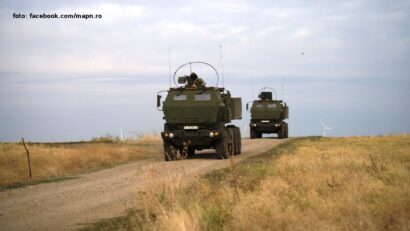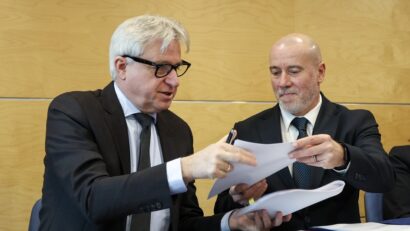Vouchers for vulnerable people
The Romanian Government will distribute social vouchers worth 50 euros each, to vulnerable persons, every two months.

Daniela Budu, 10.05.2022, 14:00
The Bucharest Government approved on Monday the granting of meal vouchers to low income people. Half of their total cost, of around 620 million euro, will come from non-repayable European funds and the rest from the state budget. The amount of 50 euro will be put on the beneficiary’s bank card every two months. The distribution of bank cards, valid until the end of the year, starts on June 1st.
The minister of investment, Marcel Bolos, has warned people that the cards’ distribution may take time, given that there are three million beneficiaries. He explained the entire process: The bank cards will be distributed by the Romanian Post National Company. They are issued by authorized units, by the Public Finance Ministry, then taken over by the Romanian Post and distributed to people, who do not need to do anything to get them.
Most beneficiaries of these bank cards are pensioners – around some 2.3 million – with a net income below 300 euro. Disabled people, families with at least two children or single-parent families with a monthly net revenue of less than 120 euros per family member, families entitled to social aid and homeless persons will also benefit this measure.
Under the project green-lighted by the Romanian Government, people who are part of more than one of the above-mentioned categories, will benefit the support granted to one category alone. Social vouchers can be used only for the purchase of food and warm meals, upon presenting an ID card. People who are part of any of these categories but who are undergoing military training, are imprisoned or reside abroad while this measure is in place, will not receive social vouchers.
The agenda of the Bucharest Government also included, on Monday, measures to support investment. The almost uncontrollable rise in the price of construction materials made the Government adjust the price of projects with non-repayable foreign financing. According to minister Marcel Bolos, the measure is needed to support projects under way, such as projects related to transport infrastructure and water and waste systems. (EE)






























